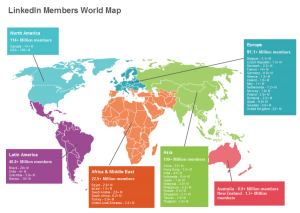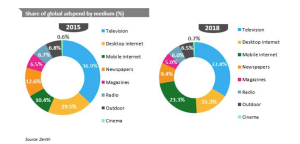While the rise of e-commerce has broken down many of the barriers that once prevented business-owners from expanding overseas, there remain a number of differences between trading domestically and in principalities around the world. The complexities of global Internet law provide a relevant case in point, while cultural and linguistic barriers can also be difficult to overcome.
These challenges are underlined by the trail of successful domestic businesses that have failed to thrive in international markets, with even global brands such as eBay and Google falling foul of Chinese lawmakers.
This proves just how difficult it is to translate domestic business success overseas, regardless of the quality of your product, service or branding.
How to Replicate Domestic e-commerce success overseas
With these challenges in mind, how exactly do ambitious e-commerce entrepreneurs set about replicating their domestic success in international markets? Here are some strategic ideas that will help you to succeed: –
Target Large and Secure Digital Markets
Before you develop an overarching strategy, you will need to target viable, international markets that have the best chance of delivering a return on your investment. There are a number of factors that must be considered as a part of this process, while it is also important to note that not all international marketplaces have been created equal.
The size of your chosen market is important, both in terms of the estimated numbers of customers you can target and the opportunities for future growth. The cost of developing an international, e-commerce infrastructure can be significant, while the roll-out of flexible automation when expanding your venture also requires investment. You must therefore have access to a market that can repay this investment and deliver a return, so long as your marketing and sales strategies achieve their goals.
Digital security is also an important consideration, as some international markets are more vulnerable to cyber-thieves and hackers than others.
Research of potential markets is therefore key, but Japan stands out as a particularly viable option for e-commerce firms. Not only is Japan home to the third largest e-commerce market in the world, for example, but it is also able to offer access to established digital hosting outlets such Amazon Japan and LASO (which makes it easier to scale your international efforts). Above all else, the Economist’s Intelligence Unit also lists the Japanese city of Tokyo as the most digitally secure in the world, while just 2% of all cyber-crime across the globe takes place in Japan.
Scale your marketing efforts and create tailored campaigns for specific regions
Whichever international markets you choose to target, you will need to consider a detailed and strategic roll-out plan for each one. This includes both operational and marketing elements, and the complexity of such a task makes it all the more important that you scale your efforts gradually and start with a single region or location.
Fortunately, the operational aspects of expanding overseas can be largely automated, so long as they have been comprehensively tested and are capable of being replicated as you look to scale in the future. The same cannot be said for marketing, however, as you must tailor a unique campaign and strategy for each individual region if you are successfully sell products or services overseas. This requires huge insight and the use of an analytical CRM programs, which enables you to profile a chosen international market and engage customers.
This tailored approach also lets you make allowance for local languages, dialects and cultures, which ensures that your brands core messages are translated accurately for customers to understand. While it is understandable that you want to maintain a consistent global brand, you may need to make slight amendments to your marketing content if its direct translation is indecipherable or liable to offend a specific cultural value. This highlights the subtle complexities and gender distinctions that define languages, which have the potential to damage your global brand before it has been established.
It is therefore sensible to partner with local agencies in your chosen market, as they can offer advice and ensure that your messages are conveyed accurately and with excellent grammar.
Ensure that you have a Network to handle your
At this stage, you should have a viable international target audience and a tailored marketing plan that offers the best possible chance of engagement. While these are crucial elements of your e-commerce expansion, however, they will amount to nothing if you cannot successful ship products once you begin to drive sales.
This is where you need to think locally, as you partner with a locally-based logistics firm that can manage your shipments. It is this type of network that enables you to capitalise on the huge growth opportunities that exist in global markets, while the smooth and successful shipment of purchased goods is also central to the reputation of your brand overseas. By failing to develop detailed supply-chain and logistics plans (or partnering with the wrong service provider) you can damage your brand’s chances of thriving abroad.
This may force the typical e-commerce entrepreneur out of their comfort zone, as they are used to managing businesses and partnerships online. It is therefore crucial that you research the market to find the best logistics firm within a specific region, and one that has immense local knowledge and is able to provide advice in addition to practical support. Reach out to these partners and ask for their involvement as your develop a transportation strategy, while defining a clear process from the receipt of a customer order to the delivery of their product.
On a final note, make sure that your local logistics partner can offer 24 hour support through customer service agents (who can preferably speak in your native language). This type of support not only keeps you informed, but it also provides reassurance and answers to customers when deliveries go awry.
Digital & Social Articles on Business 2 Community(92)





